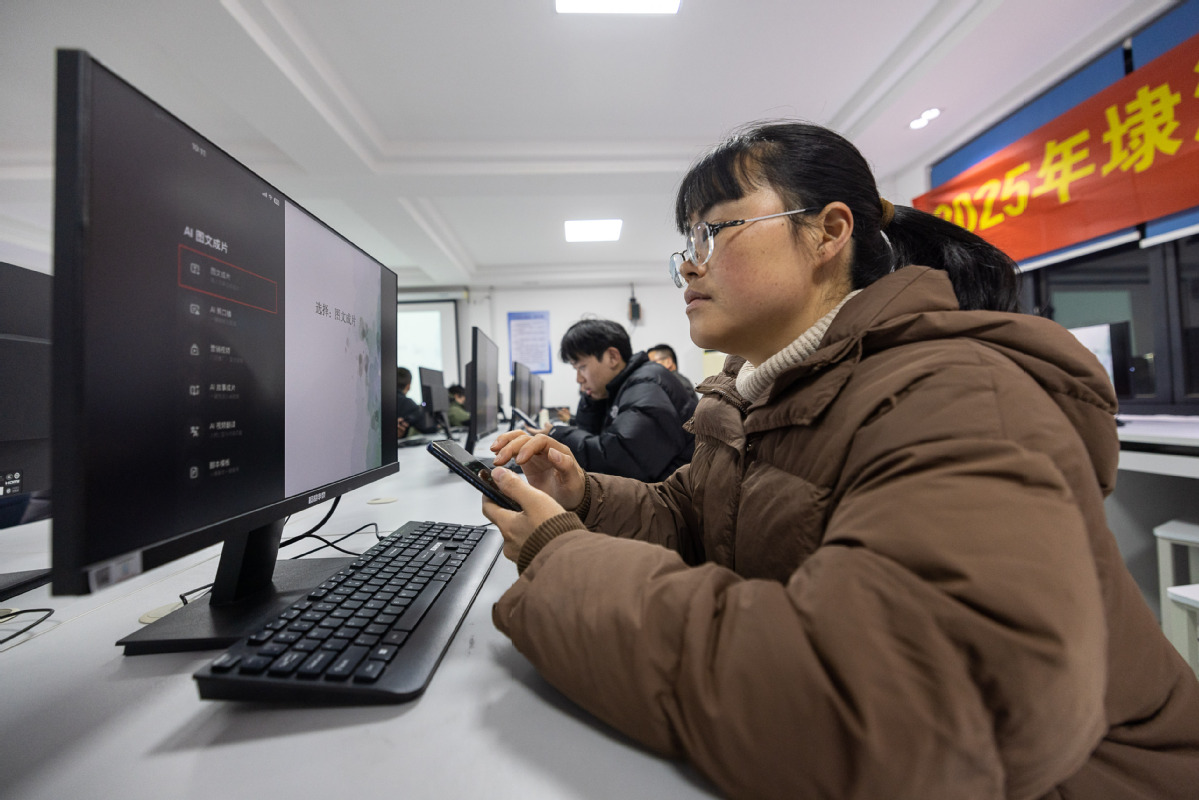Guardrails needed for AI growth
Lawmakers, political advisers call for more high-tech protections to be enshrined in law


Regulation needed
In response to the increasingly challenging landscape of copyright protection, Wu, who is also deputy head of the China Writers Association, emphasized the necessity of building a forward-looking intellectual property legal framework.
It is urgent to accelerate the research and refinement of copyright protection standards in the field of AI and formulate regulatory legal documents, Wu said.
Zhong, from Midea, called for further improvements to laws and regulations to fundamentally curb fake content generated by AI, saying that current laws and rules regarding AI-generated videos are inadequate, especially in terms of copyright ownership and privacy protection, Guangzhou Daily reported.
To address the issue, she suggested the country amend laws such as the Copyright Law to clarify the liabilities for infringement of AI-generated content, the report added.
Considering the long-term coexistence of humans and AI, Zhang, the lawyer, said that it is a must to seek a balance between the regulation and development of the technology, promoting technological and industrial development in a healthy manner with legislation.
He called for adopting a flexible and prudent legislative strategy in the process of achieving this balance. "For example, it will be suitable to interpret some current laws, or ask regulatory authorities to issue guidance to address some prominent or urgent problems caused by AI," he said.
"When it comes to specific scenarios, pilot programs and regulatory sandboxes can be used to explore solutions. Alternatively, local legislation or departmental rules can also be introduced."
While providing legal support for AI innovators, he noted that corresponding obligations should be imposed on the technological service and product providers through legislation.
AI risk prevention and accountability need to be clarified in legislation, he said, suggesting AI applications be classified based on their risk levels and then subject to categorized regulation.
Zhang emphasized that AI-related legislation should be forward-looking and have an international perspective, as AI is a dynamically evolving technology that has become a key area of international competition.
"Legislative work needs to counter foreign containment, and also establish China's own principles, so as to facilitate the international development of China's AI industry and its participation in the formulation of international rules for AI governance in the future," he added.
Lou, the spokesman for the third session of the 14th NPC, said that the Chinese government has attached great importance to the development of AI and its risk prevention, saying that China has proposed the Global AI Governance Initiative to help bridge the technological divide and prevent sci-tech innovation from becoming only for rich countries and the wealthy.
"China stands ready to work with all countries to promote the healthy development of AI, boost world economic growth and increase the well-being of people all over the world," Lou said.
Action planned
The work report of the NPC Standing Committee, which was submitted to the session on Saturday, said Chinese lawmakers will intensify research on legislation in emerging sectors such as AI, the digital economy and big data.
Ma Yide, a deputy to the NPC, said China must act fast as the world is changing fast with the development of AI. "Digital technologies are reshaping modes of production, lifestyle and governance, and are accelerating the reconfiguration of global resource allocation and the global competitive landscape," he said.
"Therefore, it's inevitable to strengthen the legal framework to support the development of the digital economy," said Ma, who is also a professor at the University of the Chinese Academy of Sciences.
He praised multiple pieces of legislation that have been introduced over the past few years, such as the Personal Information Protection Law and the Data Security Law, but pointed out that the legislation is not systematic enough.
"Issues in the digital domain, including data, personal information and AI, are interconnected and cannot be addressed in isolation," he stressed, suggesting the country conduct a thorough study in this regard and formulate a special digital legislative work plan.
Systematic legislation will provide comprehensive solutions for problems such as personal data protection, copyright protection, data ownership, AI and the release of public data, he added.
























